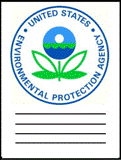United States Environmental Protection Agency

United States Environmental Protection Agency: Publications
Document Type
Article
Date of this Version
2004
Citation
Published in Journal of Applied Microbiology (2004) 97, 1077–1086. doi:10.1111/j.1365-2672.2004.02398.x
Abstract
Aims: To examine whether Aeromonas bacteria isolated from municipally treated water had virulence factor genes.
Methods and Results: A polymerase chain reaction-based genetic characterization determined the presence of six virulence factors genes, elastase (ahyB), lipase (pla/lip/lipH3/alp-1) flagella A and B (flaA and flaB), the enterotoxins, act, alt and ast, in these isolates. New primer sets were designed for all the target genes, except for act. The genes were present in 88% (ahyB), 88% (lip), 59% (fla), 43% (alt), 70% (act) and 30% (ast) of the strains, respectively. Of the 205 isolates tested only one isolate had all the virulence genes. There was a variety of combinations of virulence factors within different strains of the same species. However, a dominant strain having the same set of virulence factors, was usually isolated from any given tap in different rounds of sampling from a single tap.
Conclusions: These results show that Aeromonas bacteria found in drinking water possess a wide variety of virulence-related genes and suggest the importance of examining as many isolates as possible in order to better understand the health risk these bacteria may present.
Significance and Impact of the Study: This study presents a rapid method for characterizing the virulence factors of Aeromonas bacteria and suggests that municipally treated drinking water is a source of potentially pathogenic Aeromonas bacteria.

